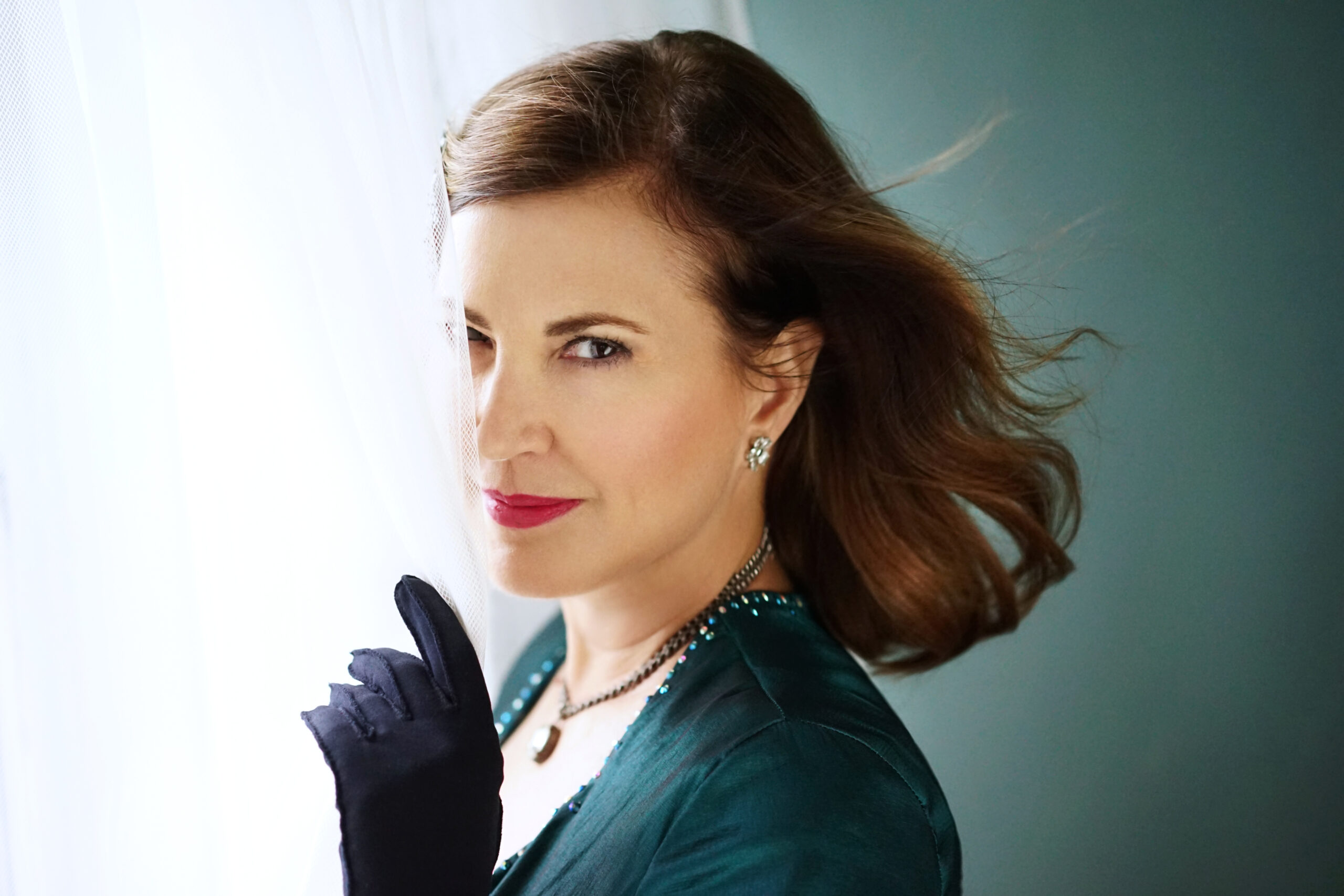Can you tell us about the inspiration behind your latest album, and what themes or stories you aimed to convey through your music?
Cajun Bleu is a study of a variety of blue chord changes and styles, but it also was a loving inquiry into my Cajun French roots. I have been singing jazz and blues standards for years, and I started to imagine how the blues and Acadian folk tunes were connected to New Orleans traditions. I needed a way to record my arrangement ideas down quickly, so I taught myself how to use a DAW (digital audio workstation). Once I discovered the ease and convenience of having a virtual band at my fingers, I added layers of harmonies, mainly focusing on traditional instruments found in jazz bands, particularly the accordion. It’s an eclectic mix that aspires to be a unique sound that is hauntingly familiar.
Music often has the power to transport people to different places and times. Can you describe a moment in your life when a particular song or album had a profound impact on you?
As a young girl my parents would listen to a variety of music styles – jazz, classic, popular, musicals – there was always some music playing in the house. I was very drawn into all of it, so when I started to study classical music I would listen to pianists like Glenn Gould, Dinu Lipatti, Vladimir Horowitz. Their lyrical interpretation of Bach had a very deep impression on me. I would listen to their albums after school. Although I could never match their technical prowess, I wanted to be in that world, however I could.
Many artists have rituals or routines they follow before performing or recording. Do you have any unique or quirky pre-show or pre-recording rituals that you find help you get in the zone?
Before a performance I will vocalize a bit, but not too much. I also do deep breathing exercises to remind myself that singing is essentially an expression of breath. Then, I usually just sit and focus on some light hitting an object in the space, strange as that might sound.
Your lyrics often tell a story or convey a message. Can you share the story behind one of your songs and the inspiration that led to its creation?
“Old Spot” came about one day while I was washing dishes and feeling blue. I heard this Gypsy jazz riff on the radio and I started to hum along to cheer myself up. I realized that oftentimes we get down in the dumps when we start thinking about the things we missed or the things we never got in life – as if there is some sort of guarantee! As I continued to work on this seed of the song, I wrote the chorus lyrics that reminded me not to focus on what I think I need, but rather all the things I already have. How mysterious and wonderful that is. “Bon Rétablissement” has a similar theme of “getting better” and picking yourself up.
If you could curate a music festival with a lineup of your dream artists, who would be the headliners, and what would the theme of the festival be?
How about a female jazz festival? Headliners could be some of the top singers today that I admire including Melody Gardot, Stacey Kent, and Cassandra Wilson.
Music can be a powerful tool for advocacy and change. Are there any social or political causes that you’re passionate about, and how does your music play a role in promoting these issues?
I have been an educator for many years. Music has been almost completely taken out of the curriculum of schools. I would like to see it return, especially in public, underfunded schools. I would support this. I am also an advocate of bringing awareness to ageism in our culture. I hope to be releasing music as long as I can.
The music industry has evolved significantly with technology. How do you see artificial intelligence and emerging technologies impacting the creation and distribution of music in the future?
In many ways musicians can greatly benefit from the technologies of music creation. I did with my first album, Cajun Bleu. I used a DAW to get my ideas and arrangements together. It was quite wonderful to be able to record my own voice and add harmonies, and to hear it right away! So I like this process. And distributing through streaming also has the advantage of creating an audience from around the world. The down side is making music with too much AI assistance. It’s like writing an essay – you can recognize the “AI” tone right away.
Many recording artists evolve over time. How do you see your musical journey changing and growing in the next decade?
I very much look forward to working on the next project and see where it takes me musically. I started with classical music, then ventured into jazz. Making this first album taught me how to combine my musical influences into something of my own, using blues chords and progression with traditional instruments and the adding all sorts of electronic sounds. That was a lot of fun. Now, I think I will continue in that vein and see where my skills take me. I am always singing and searching for melodies and words that describe what I am feeling. In a sense, music making gives me permission to explore my emotional reaction to living. And I want to share that.
